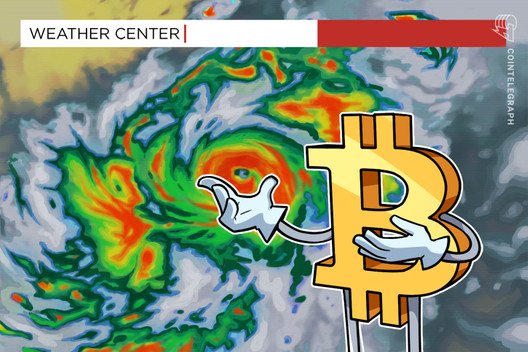Consumer loyalty is waning: Web3 could bring it back
Consider what it means to be a sports organization in 2023.
Is the success of their brand simply a parallel to the quality of each team’s performance, how proficiently an organization advertises their events and merchandise to their fans or simply defined by community, where consumers gather around the products and services that speak to each fan’s individual interests?
It is in fact all of these things, and so much more.
Since the 1960s and with the gradual advancements in advertising, our perception of what it means to rally around a brand or organization has changed. With the highly saturated markets of the 21st Century, each organization has to work extra hard to achieve consumer loyalty.
The customer loyalty and engagement market is estimated to reach a value of $18.2 billion by 2026. At the same time, consumers are feeling the effects of a worsening economy, and a recent poll found that 60% of those asked said they were concerned about the rising cost of living. Furthermore, ongoing supply chain issues and lack of inventory increased costs and decreased consumer spending.
For example, the auto industry has seen their loyalty numbers drop to below 50% last year, with many customers willing to jump to another automaker when their existing preference wasn’t available or the cost became too high. This highlights how it’s more important than ever for brands to understand their customers via programs that are easy to access and offer clearly defined benefits upfront.
Understanding and nurturing fan loyalty may be even more essential in the sporting world than in most industries. Fortunately, Web3 technology provides a powerful way to unlock understanding of fan loyalty without these organizations having to rely on a third party to “own the fan relationship.” By creating enhanced experiences across multiple branding use cases, franchises of all types can leverage blockchain-based technology to understand, retain and gain new customers.
Join the community where you can transform the future. Cointelegraph Innovation Circle brings blockchain technology leaders together to connect, collaborate and publish. Apply today
Improving understanding of consumer loyalty with Web3
Decentralized technology addresses many of the existing problems that Web2 brand loyalty programs currently struggle with, like fragmented engagement, low-activity users and difficulty scaling. Often, brands set out on endeavors that don’t amount to much beyond signing up for a loyalty system and earning a one-off small discount. It takes more to capture the attention of fans and consumers today.
Few brands can motivate consumers through previous “spend-to-earn” models. Web3 programs, on the other hand, can do so much more than their legacy counterparts through the many upsides that come with blockchain-powered programs.
The potential to provide a consumer with a one-action step to unlock ongoing benefits, real rewards and exclusive experiences is what sets this new strategy apart from Web2 loyalty programs. But we’re only just scratching the surface when it comes to using Web3 and NFTs as a vehicle for driving consumer understanding and engagement.
Utility or perks-based digital collectibles in particular have the power to bring experiential and other incentives to holders while simultaneously providing truly owned digital memorabilia they can keep, sell or trade forever. These digital collectibles can be designed to have flexible, evolving functionality, making them a memento and a pass to discount codes, experiences or even an avatar or wearable virtual item.
They can be upgradeable, tradable and transferable, opening up a more active community around a brand or product. Even better, as the collectible trades hands, through a sale or otherwise, the original distributor can now understand the original purchaser (through the data available on the blockchain) and build a relationship with the new owner, understanding who they are as a fan and consumer.
Nike has created a Web3 platform, called .Swoosh. It is designed to serve the future of sports by offering a unique consumer experience as well as a new market for Nike-branded virtual creations. These include interactive digital objects (virtual shoes or jerseys) that can also unlock real-world products or VIP access to events and offerings.
Even high fashion brands are getting in on this paradigm shift. For example, fashion house Dolce & Gabbanalaunched their own NFT collection in 2021 called the “Collezione Genesi,” which was able to generate approximately $5.65 million in sales. The collection was aimed at luxury clientele and is an example of just how flexible Web3 campaigns can be.
Creating lasting loyalty requires building quality programs
These examples highlight how brands that engage consumers via NFTs need to bring high-quality, thoughtful experiences to their fans. One way they can do this is by teaming up with the right tech partners that work directly with a brand or team to build and deploy white-labeled Web3 programs that tie directly into an entire organization’s ecosystem. These Web3 experts can then offer further guidance on rewards program enhancements, promotional mechanics, consumer engagement and analytics, and a wider ongoing strategy.
Fans then lean on that trusted partner to create a familiar experience that leverages new underlying blockchain-based technology, as they begin claiming perks offered by their favorite sports organizations and brands. With the help of carefully managed mechanics and elaborate data insights, these organizations can then find the right balance of price points, benefits, tiers and utility to deliver maximum engagement, ultimately enhancing the efficiency of their retargeting efforts as a whole.
Utilizing Web3 for fan engagement is in its early days, but the potential for revolutionizing how fans interact with teams, leagues and brands is a game-changer. Now that we are past the NFT craze of 2021 and 2022, it is more important than ever for businesses to think carefully about how they launch and who they partner with. If executed right, a brand integrating Web3 into understanding customer loyalty can see significant benefits, and ensure their place ahead of the curve with the right Web3 partner.
Betsy Proctor is Global Head of Partnerships at Sweet, the consumer-friendly Web3 platform for professional sports franchises.
This article was published through Cointelegraph Innovation Circle, a vetted organization of senior executives and experts in the blockchain technology industry who are building the future through the power of connections, collaboration and thought leadership. Opinions expressed do not necessarily reflect those of Cointelegraph.
Learn more about Cointelegraph Innovation Circle and see if you qualify to join








